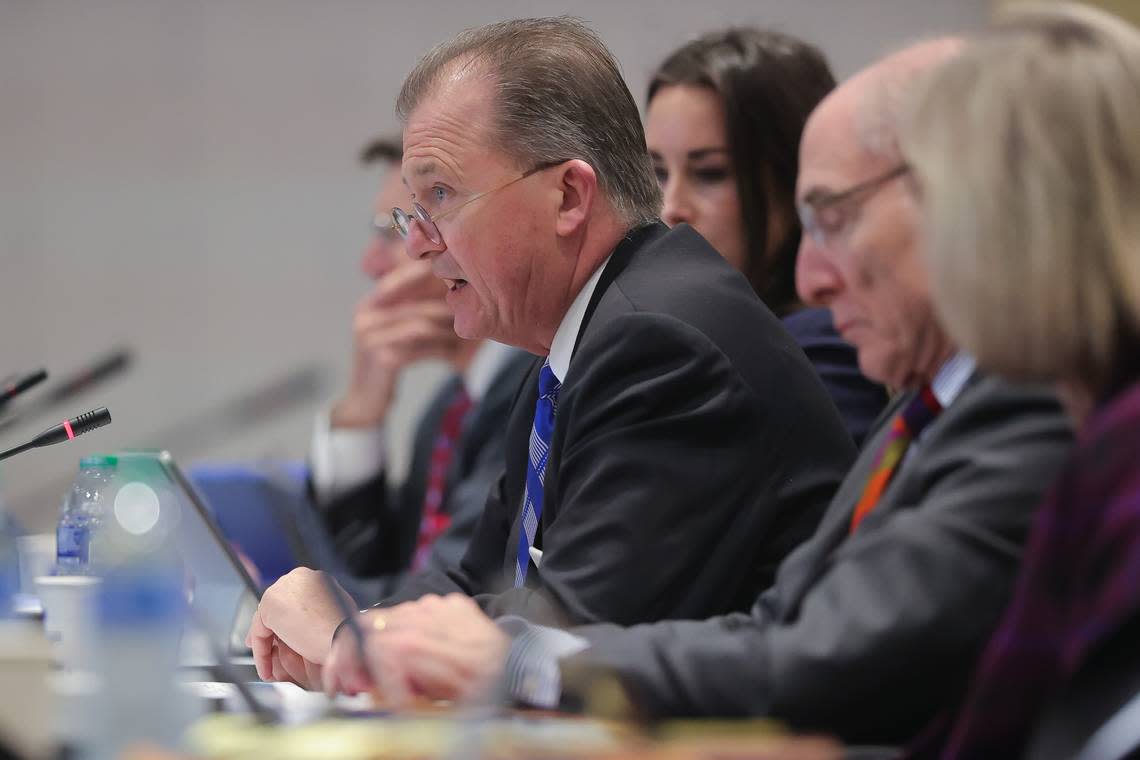UK Board Chair: Trustees are ‘successful business people’ who know what’s at stake for flagship school | Opinion

By E. Britt Brockman
There’s been a great deal of discussion recently on the University of Kentucky campus and in the pages of the Herald-Leader about the arcane process of internal governance.
Why is this issue so important that it would occupy so much time and energy?
Whether you are running a university or a high school, a business or a government agency, the rules and regulations determine a lot about whether you will be successful.
They help dictate whether you can be responsive to the needs of those served. They establish parameters for basic operations, but also whether those day-in-and-day-out activities align with your most important principles and values.
In other words, the internal rules of the road help progress, or they hinder it.
That’s critical because we believe there’s a lot riding on our progress at UK.
Kentucky is generating billions of dollars in economic opportunities, creating a more diverse and vibrant citizenry and economy. But we simply don’t have the numbers of skilled workers to fill the jobs.
About a quarter of all new jobs in the state will require at least a bachelor’s degree. Most of the fastest growing occupations will require a master’s degree. Yet, Kentucky has among the lowest labor participation rates in the country.
We are enrolling record numbers of students – nearly 34,000 this past fall – and are graduating them at higher rates than ever before in our history. More than 25 percent of our students are first-generation college students. About a quarter of our Kentucky undergraduates come from families where the median family income is less than $25,000 annually.
We have done a lot as Kentucky’s university. But we must accelerate our progress.
Growth doesn’t equate, as one columnist opined, to UK becoming a “corporate degree mill.”
Providing education to more people, specifically more Kentuckians, is our mission, not a corporate takeover.
That’s why we directed UK President Eli Capilouto in October to find ways to expand our efforts around smart enrollment growth tied to the needs of the Commonwealth. And why we asked him to ensure our curriculum is preparing students not simply for their first job, but their 10th one or for those they will create. This means a curriculum that focuses on the soft skills and the technical ones, grounded in the humanities and deepened by specific career development.
And, yes, we directed Dr. Capilouto to take a hard look with the campus at the rules and structures that dictate what we can do. We examined more than two dozen universities to see how they work.
We are an outlier. And despite criticisms, that fact has never been substantively disputed.
Being one of one isn’t, by definition, bad. But you shouldn’t be too timid to ask what it means.
When you combine it with the fact that hundreds of students and staff – and many faculty – say that the internal rules and structures leave them feeling disenfranchised, it points to a need for revision and reform.
That’s why we have given initial approval to revisions to our governing principles that make them easier to understand. They clearly express where lines of authority go and what they mean.
Significantly, we’re expanding avenues of participation in decision-making for students and staff in ways they’ve never had before. More authority should be held by faculty at the college level, closest to those most impacted. We’ve explicitly spelled out and reaffirmed our commitment to academic freedom and protections for tenure. That has not and will not change.
Similarly, and despite what some have trafficked, we will not be removing the responsibility or authority of our faculty to define grades, an excused absence, and plagiarism; develop course/program content; or consult faculty before closure of programs or departments.
Yes, we’ve stated clearly that the Board of Trustees sets policy, and we direct the President to implement it, while consulting with the community.
That seems to be a flashpoint of criticism for some, the idea that the people’s representatives for the people’s university have neither the skills nor the knowledge to make such decisions.
Board members are successful business people and public policy representatives. They have been deeply engaged in our state’s civic life. They understand the gravity of what we do and its importance for Kentucky.
In fact, when I met recently for more than an hour with a senior consultant with the Association of Governing Boards, I was told that what we are proposing is “not radical. It’s best practice.”
The debate over these issues is essential. I respect those who have spoken out in support of, and in opposition to, the changes.
But no one should doubt this Board’s resolve to help position UK to do even more on behalf of the state we serve. It is our calling.
It’s why we are here.
We don’t plan to stop.
Britt Brockman is chairman of the University of Kentucky Board of Trustees.

